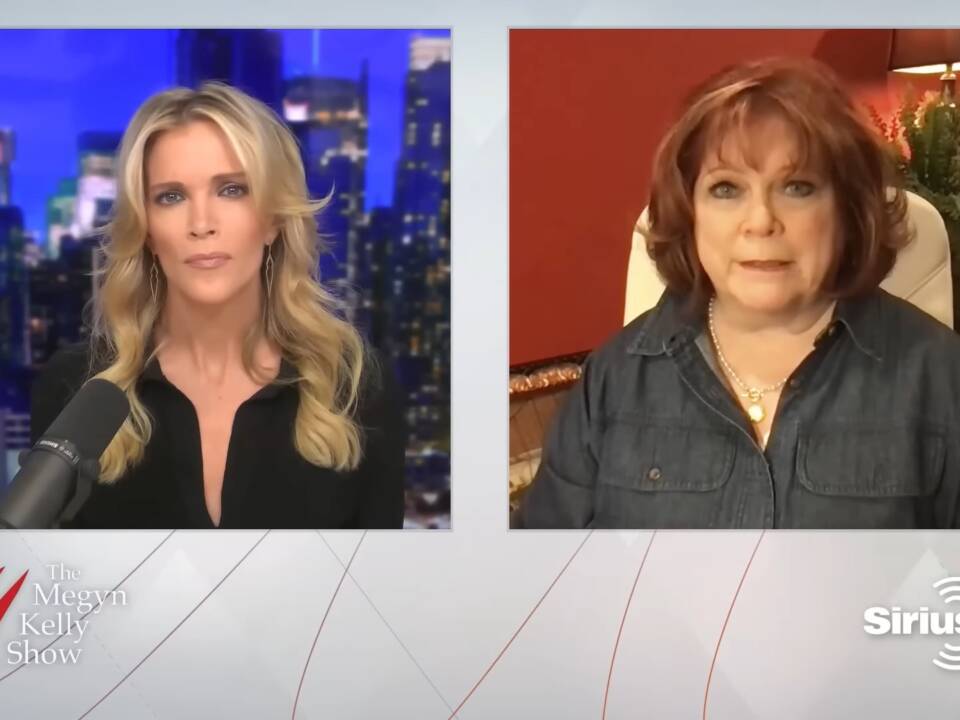It’s ‘Hot Crime Summer’ on The Megyn Kelly Show this week, and it begins with a look at the Watts family murders. In August 2018, Christopher Watts killed his pregnant wife, Shenann Watts, their young daughters, Bella and Celeste Watts, and their unborn son. Megyn considers this one of “the most disturbing cases” that has “haunted” her for many years because of the cold-blooded nature of it.
On Monday’s show, she was joined by retired FBI profiler Mary Ellen O’Toole to discuss the circumstances that led up to the murders and the investigation, which included Chris’ father cooperating with authorities and getting the initial confession from his son. That led Megyn to wonder: “Can any of us raise a killer? Do you know if you’re raising a killer?”
How Chris Watts Became a Family Annihilator
Chris and Shenann met in 2010. She described in a Facebook video that he came into her life at a very low and difficult time for her. The couple married in 2012 and welcomed their first daughter, Bella, in 2013. They filed for bankruptcy not long after and had a second child, Celeste, in 2015. By June of 2018, it was clear that Chris was distancing himself from his family. He began an affair with a colleague and was seemingly caught off guard by the news that Shenann was expecting a third child.
Throughout O’Toole’s career, she helped capture, interview, and understand some of the world’s most infamous criminals – including Ted Kaczynski (a.k.a. the Unabomber), Gary Ridgway (a.k.a. the Green River Killer), and more – and she said one thing that is true of family annihilators is that they don’t “snap” and kill their families. The crimes are almost always pre-planned, which means it’s important to look for where stressors may arise in the killer’s life. In the case of Chris, O’Toole believes the “stress and, possibly, resentment was building for years,” stemming from the couple’s finances and the parenthood.
Needless to say, that alone does not drive someone to murder their family. “When you have a case like this where the biological parent goes after his own children, it really causes the case to stand apart from other crimes,” O’Toole shared. “Someone going after their biological children purposefully makes it extremely egregious, and then the manner in which the children were killed here and the manner in which the bodies were disposed of – in such a callous and cold-blooded way – is really disturbing.”
It was ultimately determined that Shenann was strangled to death, while Bella and Celeste were smothered. Chris dumped his daughters’ bodies into oil tanks and buried his wife in a shallow grave on the grounds of the Anadarko Petroleum Company where he worked. In November 2018, Chris pleaded guilty to the murders and was sentenced to three consecutive and two concurrent life sentences.
Identifying a Murderer
To answer Megyn’s original questions – “can any of us raise a killer; do you know if you’re raising a killer?” – O’Toole confirmed that it is possible. “I think it’s possible for families and parents to raise someone that can ultimately act out in a way that ends in somebody else being murdered,” she said.
That does not mean, however, that anyone could have foreseen the gruesomeness of what Chris did to his wife and children. “You have to look at what were the circumstances of the murder and, in this case, it’s very cold-blooded. In this case, it was planned. In this case, it involved the biological children. In this case, it involved a triple murder and [they] were treated like objects,” she explained. “That’s very different than someone that murders in a really impulsive way, or someone that murders because they’ve had too much to drink.” As a result, she believes Chris’ family would be “really struggling with what the heck happened here.”
While there were likely warning signs that may have been a tip off that something bad was coming, O’Toole said “we’re not raised and we’re not trained to know what to look for” when it comes to “personality traits” and determining the “potential for dangerousness.” This is especially true of those closest to the killer.
From her four decades of experience, O’Toole has learned that “there are red flags along the way,” but “it’s so difficult for family members to look at a loved one and say there’s a problem.” Those “problems” could include how the person gets along with others, how they interact, the rage they do or do not show. “It’s there… [but] it’s so difficult for family members to see that,” she said. “And really that’s part of the reason that we have problems when we put out the warning behaviors for mass shooters.”
The guidelines are “really designed for the family to see,” but so often in these situations the loved ones say they didn’t see anything, she noted. “I’ve just seen this and heard this over and over again,” she concluded. “When you love someone, you just oftentimes don’t see what’s there that can be dangerous.”
You can check out Megyn’s full interview with O’Toole about the Watts family murders by tuning in to episode 570 on YouTube, Apple Podcasts, or wherever you like to listen. And don’t forget that you can catch The Megyn Kelly Show live on SiriusXM’s Triumph (channel 111) weekdays from 12pm to 2pm ET.


